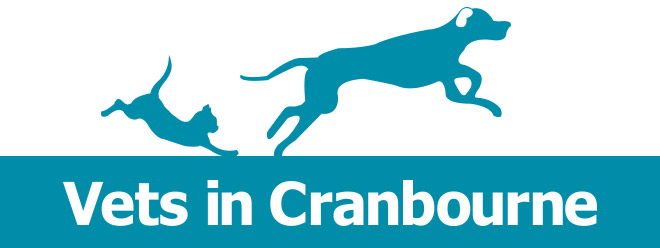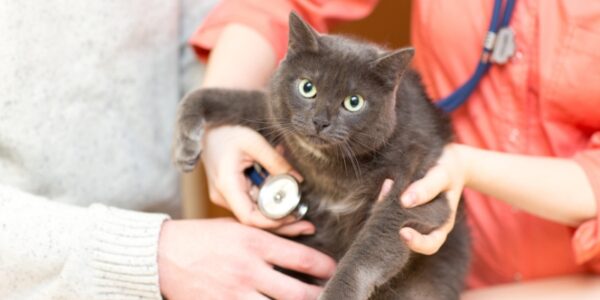Around 40% of dogs and 30% of cats in Australia suffer from weight problems. The most common causes of weight problems include overfeeding, too many snacks, a lack of exercise, and chronic health conditions including hypothyroidism.
Whilst a chubby cat or dog might be nice to cuddle up to, excess weight has a huge impact on your pet’s quality of life. Overweight or obese pets run a much higher risk of developing several serious health conditions and have a significantly reduced lifespan. Below are just a few of the health issues that excess weight can predispose your pet to:
- Diabetes
- Osteoarthritis
- Spinal problems
- Cruciate injuries
- Higher anesthetic risk
- Exercise intolerance
- Heat intolerance
- Skin problems
If you suspect your pet may be carrying some excess weight, call Vets in Cranbourne to make an appointment. One of our experienced staff will be able to help you develop a weight management plan tailored to suit your pet’s needs.
Tips for weight loss in dogs
- Reduce calorie intake
Cutting down your dog’s calorie intake and increasing their energy output is the most straightforward way to help your pet lose weight. Firstly, consult with your vet to determine the right portion sizes for your pet and what type of exercise regime would best suit their current health condition. From then on, it’s just a matter of being firm and not giving in to those hungry puppy dog eyes. - Choose vegetables
As omnivores, dogs benefit from a varied diet but a lot of the commercially available dog kibble is high in calories and carbohydrates. Try replacing a quarter or a third of your dog’s regular kibble with vegetables which contain less calories but are still full of vitamins and will still keep your dog feeling full. - Cut the carbs
Following on from this, be critical about the kind of commercial dog food you are buying. Invest in a product that is low in fat and carbs but high in protein and fibre. If you’re having trouble finding the right product, consult your vet. - No more cheese!
Human food is not good for dogs! It contains too many calories and is often difficult for your dog to digest. If you want to treat your pet, choose something high in animal protein like a lean cooked chicken breast or specially formulated dog treats. - Bones as meal replacements
Bones and chews are a great way to kill boredom and promote dental health, but you should think of these as meal replacements, rather than extra treats.
Tips for weight loss in cats
- Feed them less
Your vet can help you work out how to safely reduce your cat’s calorie intake by managing portion sizes. - Control grazing
Cats like to eat small amounts of food throughout the day and this is fine. However, owners often think this means the cat bowl needs to be constantly full and this generally results in cats overeating and gaining excess weight. You need to measure out the correct amount of food for your cat each day and don’t top up the bowl again until the next day. Your cat will learn to adjust its grazing habits to suit the lower portion sizes. - Cats don’t need carbs!
As carnivores, cats really don’t need a lot of carbs in their diet and the empty carb calories in many commercial cat foods can not only cause weight problems but also diabetes. Make sure you are feeding your cat food that is high in protein and fibre with a minimum of carbs and fat. - No human food
Cats and human food do not mix. Feeding your cat a slice of cheese is the equivalent of you eating a whole block of the stuff. If you want to treat your cat, invest in some specially formulated cat treats that are high in protein.




